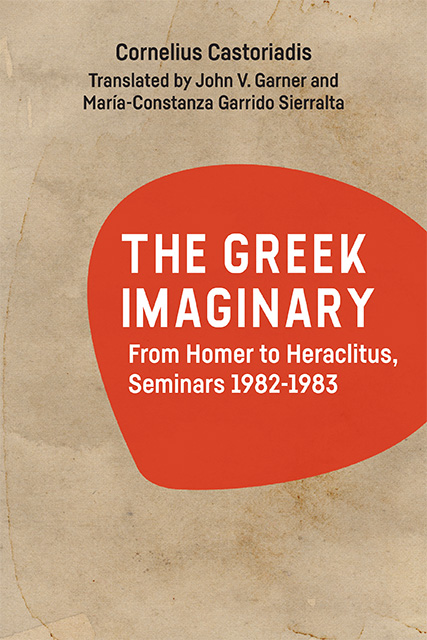II - Seminar from November 17, 1982
Published online by Cambridge University Press: 20 October 2023
Summary
This year we’re talking about the creation of democracy in ancient Greece. In one sense, this has to do with the past. Why are we interested in the past and in this past in particular? Before going into this question, there’s another one with respect to which it is good to lay down some points of reference: What connection, other than a passive one, can we have with the past? On what basis and by means of what can we understand it? There’s a response as old as the question itself, proposed since antiquity, and which has made a comeback over the last fifteen or so years, one upheld by very serious and very important historians. Simplifying or perhaps caricaturing it a bit, one could summarize it in the following way: There cannot be any authentic historiography, any history in the sense of an inquiry into and acquaintance with the events of the past. All historiography is thus arbitrary. This is more or less the position of Paul Veyne in a very interesting and very informative book, Writing History. For my part, I think, as such, that this is completely unacceptable in the sense that it drags in a certain direction some considerations that, taken up individually, are completely right. For, in the historical past there are facts that are more or less obscure or more or less certain, but ones about which a rational, reflective inquiry is entirely legitimate and possible. Such an inquiry is neither arbitrary nor any more open to criticism than, for example, the works of anthropologists and archaeologists who, after having uncovered bones dating from four million years ago or even more, try to reconstruct the hominids to whom they belong. Or ones who ask themselves why, approximately sixty or seventy million years ago, the great dinosaurs disappeared, which allowed mammals to develop and dominate the emergent lands. This is an inquiry about perfectly legitimate facts, and it’s entirely the same in the case of history, where there are also things to establish: These cuneiform tablets clearly belong to such and such an era; therefore, these people wrote, wrote certain things, and one has to decipher them.
- Type
- Chapter
- Information
- The Greek ImaginaryFrom Homer to Heraclitus, Seminars 1982-1983, pp. 15 - 34Publisher: Edinburgh University PressPrint publication year: 2023



